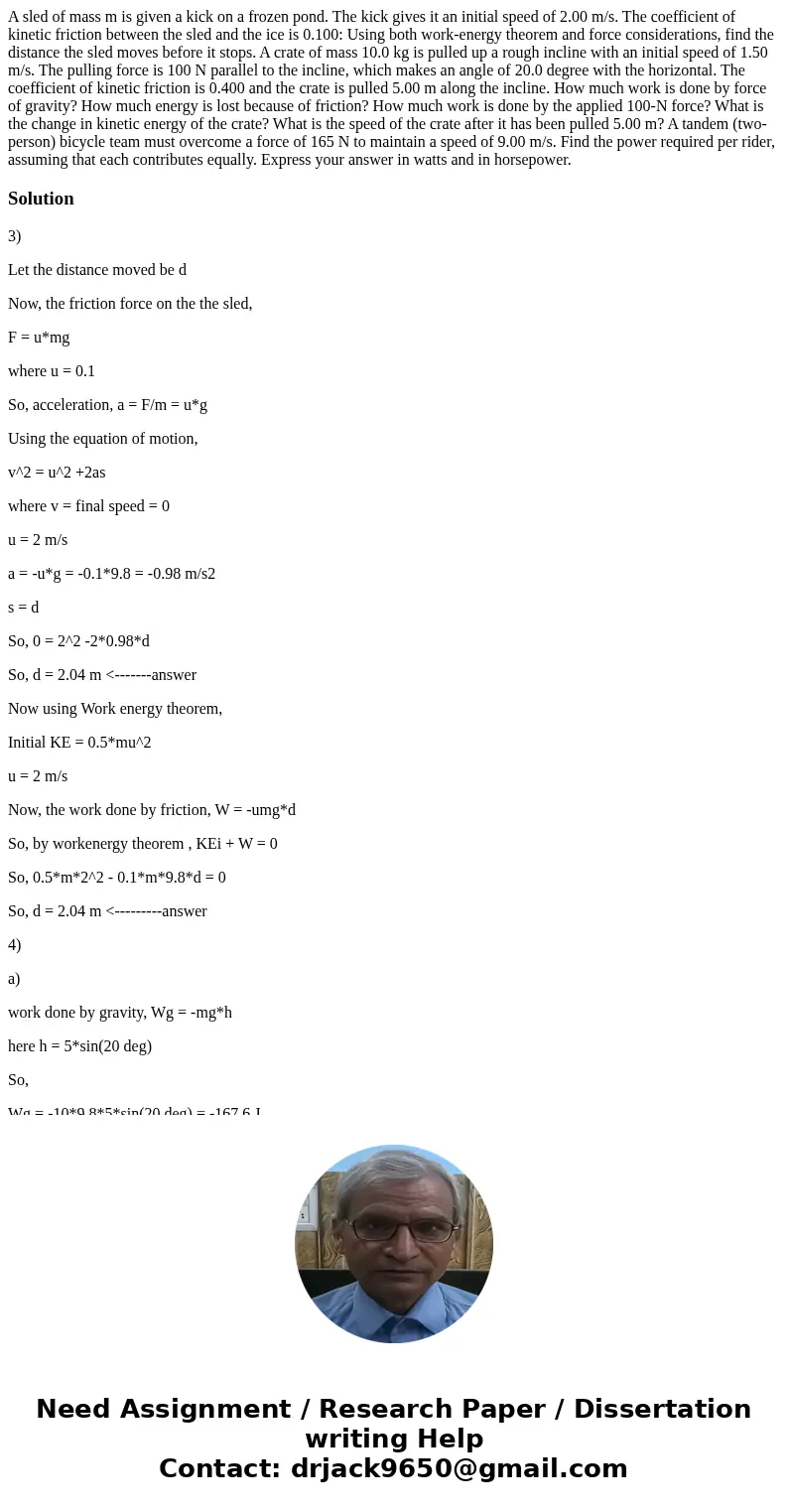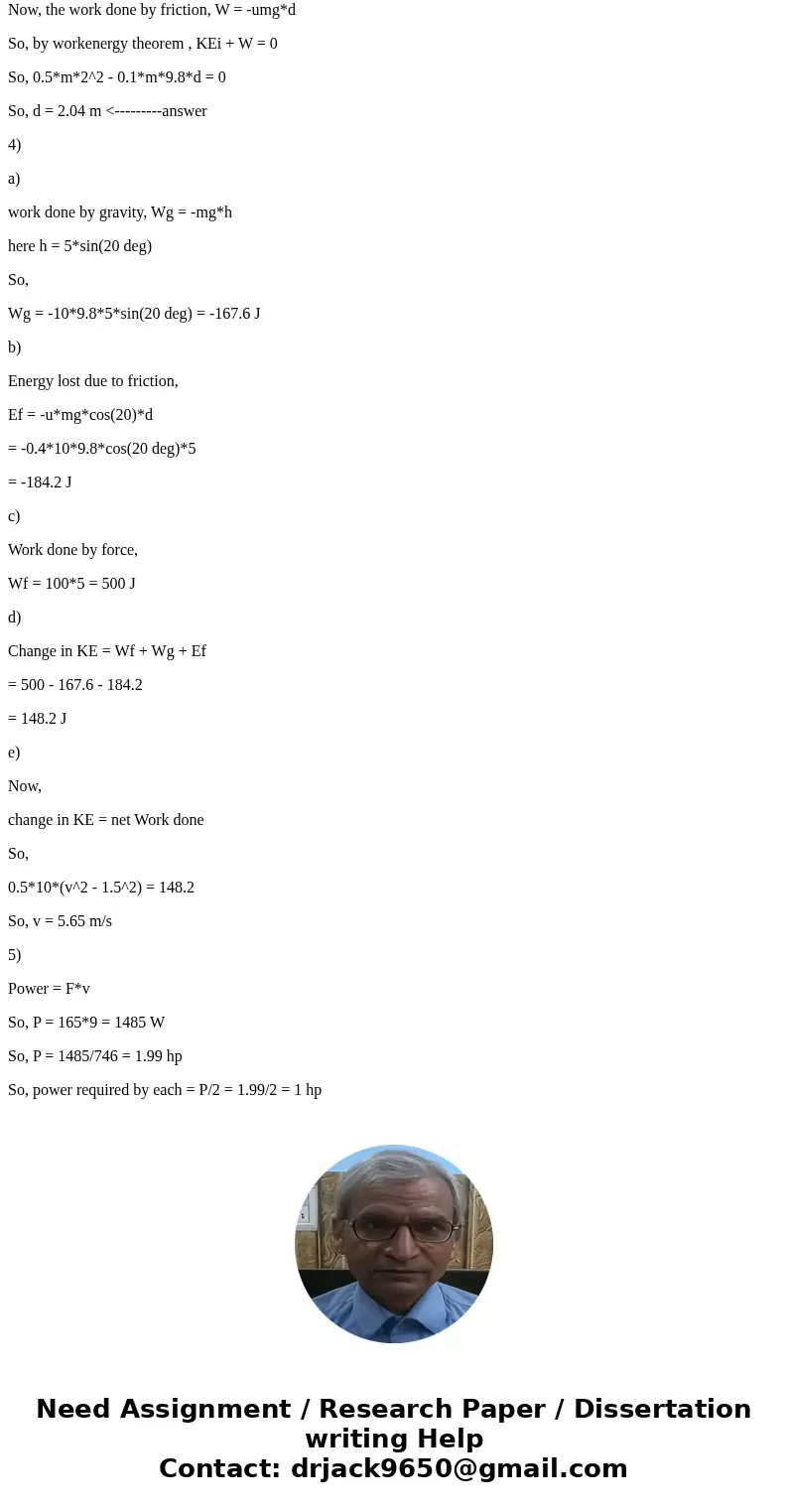A sled of mass m is given a kick on a frozen pond The kick g
Solution
3)
Let the distance moved be d
Now, the friction force on the the sled,
F = u*mg
where u = 0.1
So, acceleration, a = F/m = u*g
Using the equation of motion,
v^2 = u^2 +2as
where v = final speed = 0
u = 2 m/s
a = -u*g = -0.1*9.8 = -0.98 m/s2
s = d
So, 0 = 2^2 -2*0.98*d
So, d = 2.04 m <-------answer
Now using Work energy theorem,
Initial KE = 0.5*mu^2
u = 2 m/s
Now, the work done by friction, W = -umg*d
So, by workenergy theorem , KEi + W = 0
So, 0.5*m*2^2 - 0.1*m*9.8*d = 0
So, d = 2.04 m <---------answer
4)
a)
work done by gravity, Wg = -mg*h
here h = 5*sin(20 deg)
So,
Wg = -10*9.8*5*sin(20 deg) = -167.6 J
b)
Energy lost due to friction,
Ef = -u*mg*cos(20)*d
= -0.4*10*9.8*cos(20 deg)*5
= -184.2 J
c)
Work done by force,
Wf = 100*5 = 500 J
d)
Change in KE = Wf + Wg + Ef
= 500 - 167.6 - 184.2
= 148.2 J
e)
Now,
change in KE = net Work done
So,
0.5*10*(v^2 - 1.5^2) = 148.2
So, v = 5.65 m/s
5)
Power = F*v
So, P = 165*9 = 1485 W
So, P = 1485/746 = 1.99 hp
So, power required by each = P/2 = 1.99/2 = 1 hp


 Homework Sourse
Homework Sourse